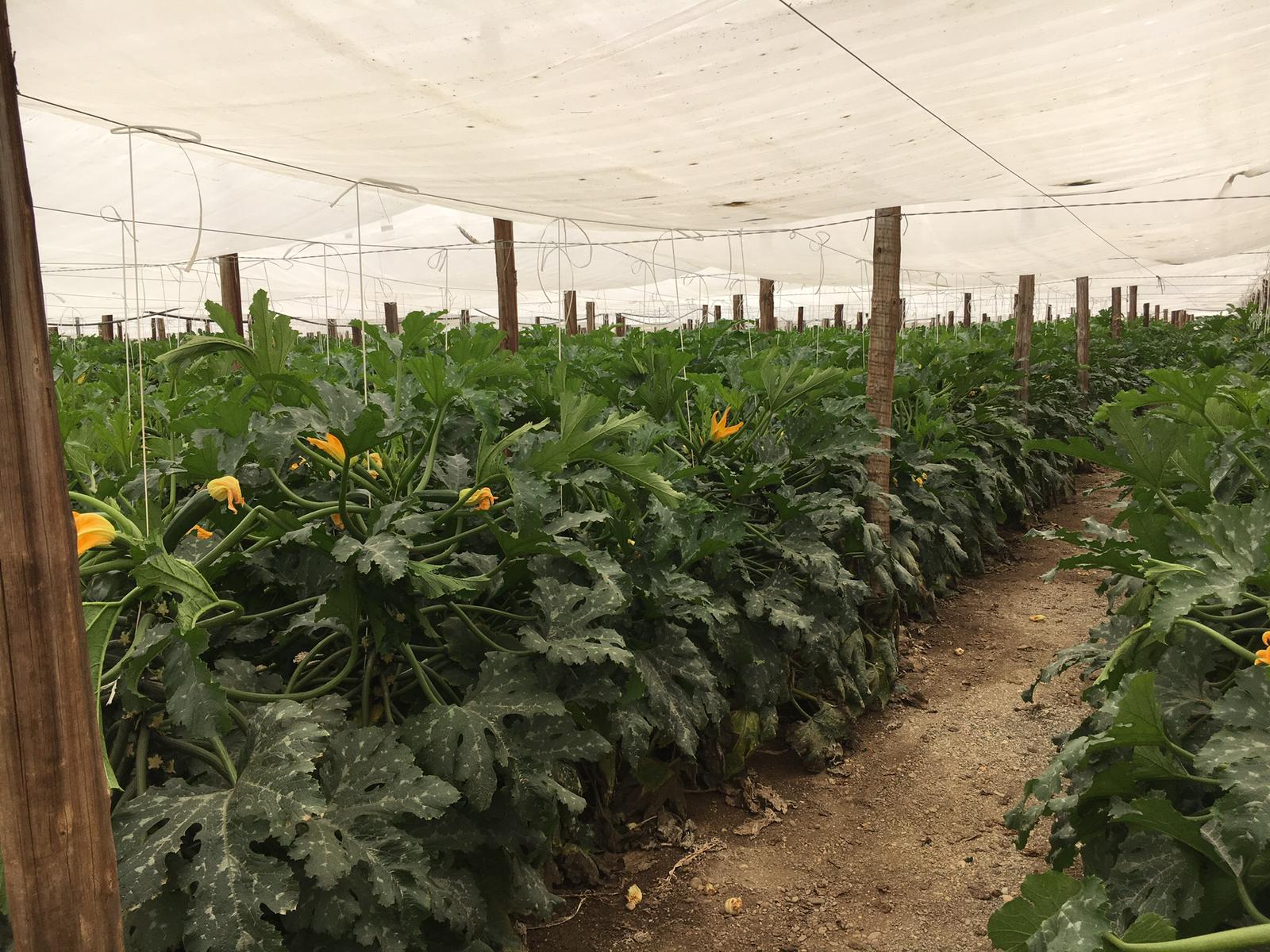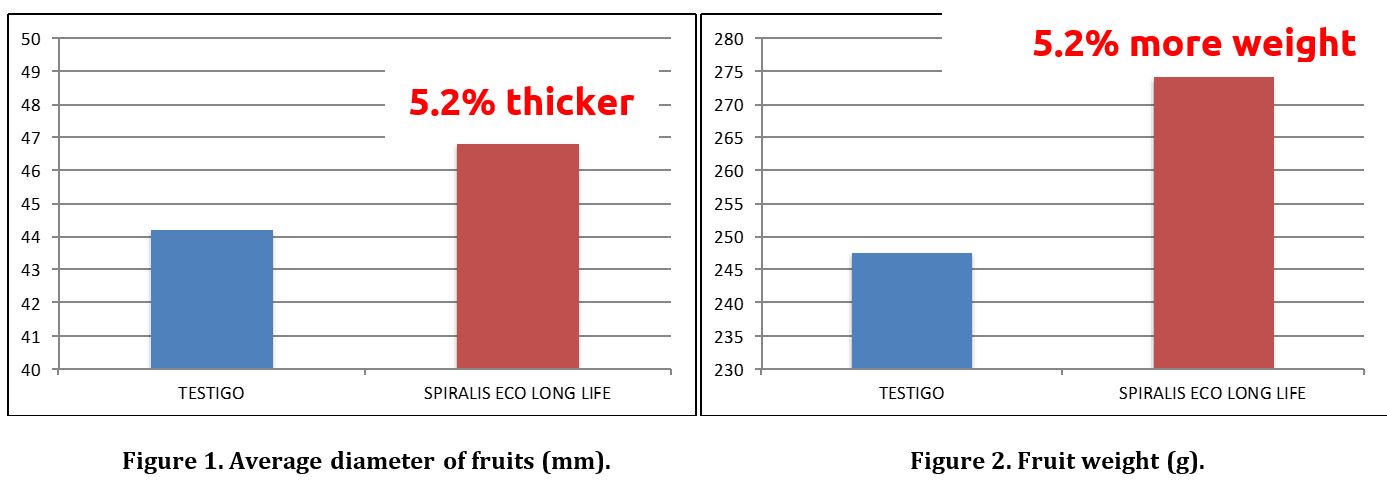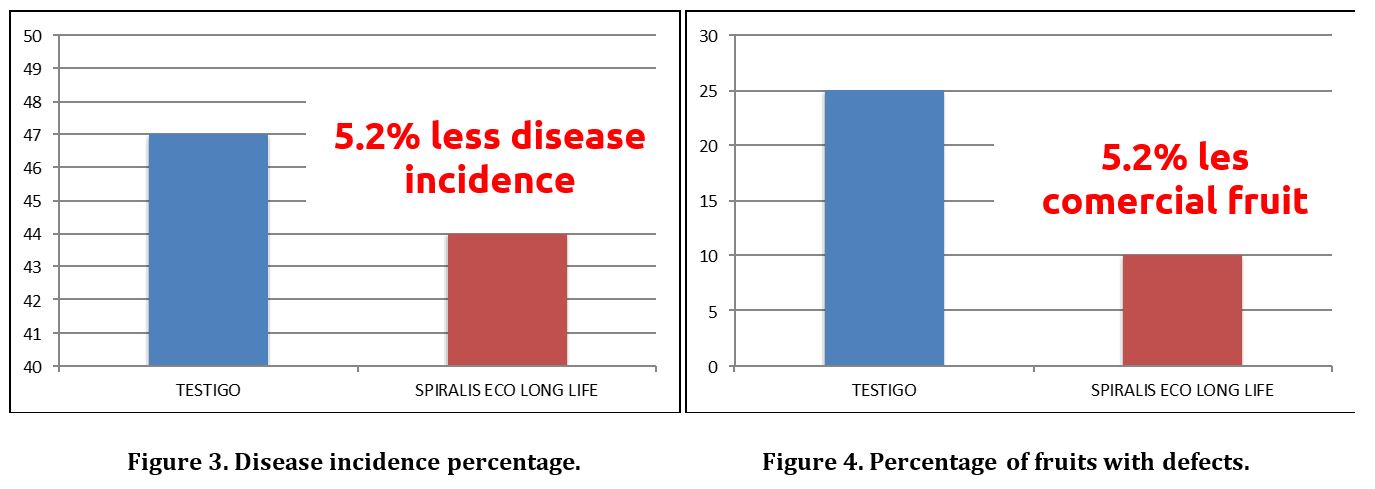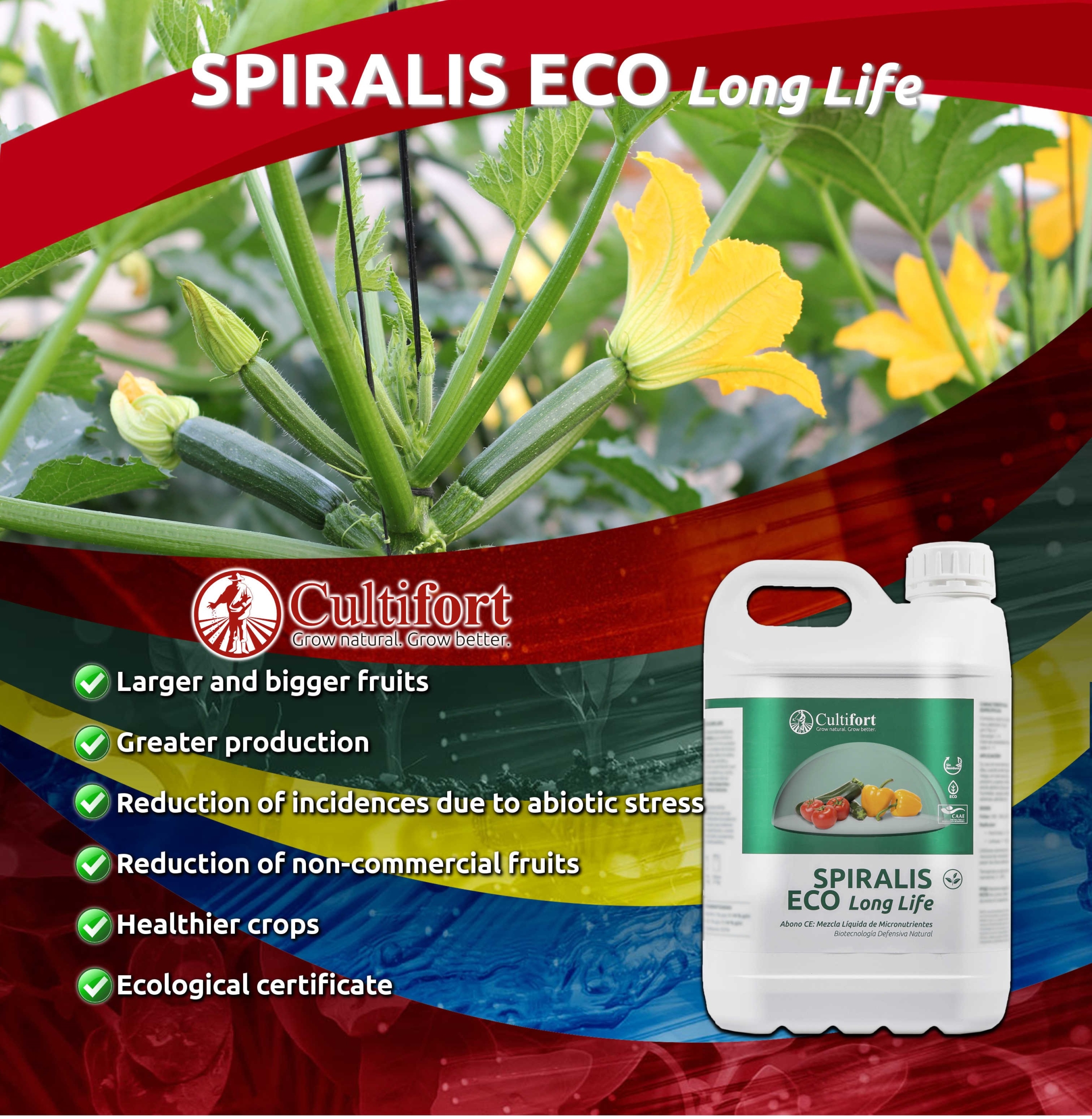Cucurbits are a family of plants of great ethnobotanical importance. They occupy the second place in Spain and Europe in terms of horticultural production. Specifically, Almería is the region with the largest greenhouse vegetable production area in the European Union. The nearly 30,000 hectares of greenhouses are mainly dedicated to the production of nightshades and cucurbits, including the latter, important horticultural crops such as cucumber, zucchini, melon, and watermelon, with 5,023, 7,439, 2,589 and 10,524 hectares, respectively (Source: Anuario de Agrarian Statistics 2019. Ministry of Agriculture, Livestock, Fisheries and Sustainable Development. Junta de Andalucía).
The development of the crop can be affected by biotic factors (action of living beings) or abiotic factors (action of physical and chemical factors, such as drought, heat, cold, nutritional deficiencies or phytotoxicities, etc.). One of the great challenges of this type of crop is the management of pests and diseases. Its presence is related to a greater extent with the weather and cultivation practices. This highlights the importance of improving the natural defense system of the plant, since our crops do not always develop in optimal and ideal conditions.
The development of resistance by certain phytophagous insects and certain pathogens, caused by the excessive use of generic pesticides and by inappropriate cultivation practices (abandonment of infected crops, lack of rotation, etc.), together with the, each time greater loss of active materials for the control of pests and diseases and the regulatory requirements in the field of fertilizers, has led to the development of alternative inputs, such as the use of beneficial organisms or biostimulants to improve tolerance to various factors of stress, all with the aim of being able to reduce the use of pesticides.
In order to reduce the damage caused by external agents, increase the resistance of crops against stress and help them in their recovery, at Cultifort we have developed the SPIRALIS ECO Long Life biostimulant, the result of the innovative line of R + D + i : Natural Defensive Biotechnology.
This fertilizer acts mainly in a preventive and regenerative way. It induces and enhances a local and systemic endogenous increase of molecules with high defensive capacity, that is, it produces a bioprotective effect against external stress factors. The endogenous defensive molecules synthesized induce structural changes in the cell walls of plants at the level of their lignification, constituting a physical barrier against the different stress factors.
In addition to improving the defensive capacity of the plant, SPIRALIS ECO Long Life significantly improves post-harvest life by protecting the fruits against rotting, degradation or other alterations.

During the 2017-18 campaign, various trials were carried out in Almería with SPIRALIS ECO Long Life in cucurbits. Production increases of 26 and 28% were achieved in Dutch cucumber and Piel de Sapo (“Toad skin”) melon, respectively, mainly due to greater health of the crops, which resulted in an increase in the size of the fruits and, therefore, to a greater weight of them.
This article presents in more detail the results obtained for growing zucchini. To carry out the test, different elementary plots of identical surface were established, on which, weekly treatments of SPIRALIS ECO Long Life were carried out during the entire crop cycle, compared to their respective controls, without treatment (control – “testigo” on the figures).
Regarding the evaluated results, in the Sinatra variety, there was a 5.2% increase in the thickness of the courgettes from the treatment with SPIRALIS ECO Long Life (Figure 1), which translated into 14.8% more weight of these fruits with respect to the control treatment (Figure 2). In addition, a 3% reduction in the incidence of diseases was observed compared to the control (Figure 3).

In a similar experience with the SV9519 Monsanto variety, it is worth highlighting the reduction of 15% in non-commercial fruits in the case of the SPIRALIS ECO Long Life treatment compared to its corresponding control (Figure 4).

The average production of zucchini in Almería during the 2017-18 campaign was 5.8 kg / m2 (Source: Yearbook of Agrarian Statistics 2019. Ministry of Agriculture, Livestock, Fisheries and Sustainable Development. Junta de Andalucía) whose average price at origin it was priced at € 0.52 / kg (Source: Prices and Markets Observatory. Ministry of Agriculture, Livestock, Fisheries and Sustainable Development. Junta de Andalucía). Thanks to the use of SPIRALIS ECO Long Life, production increases of 0.86 kg / m2 were achieved, which translated into economic terms represented a further € 0.44 / m2 of economic benefit.
Extrapolating these results at the level of surface area per hectare, the continued and periodic use of SPIRALIS ECO Long Life during the entire crop cycle in zucchini, would return an important benefit to the farmer, which would more than justify the cost of the treatment.


